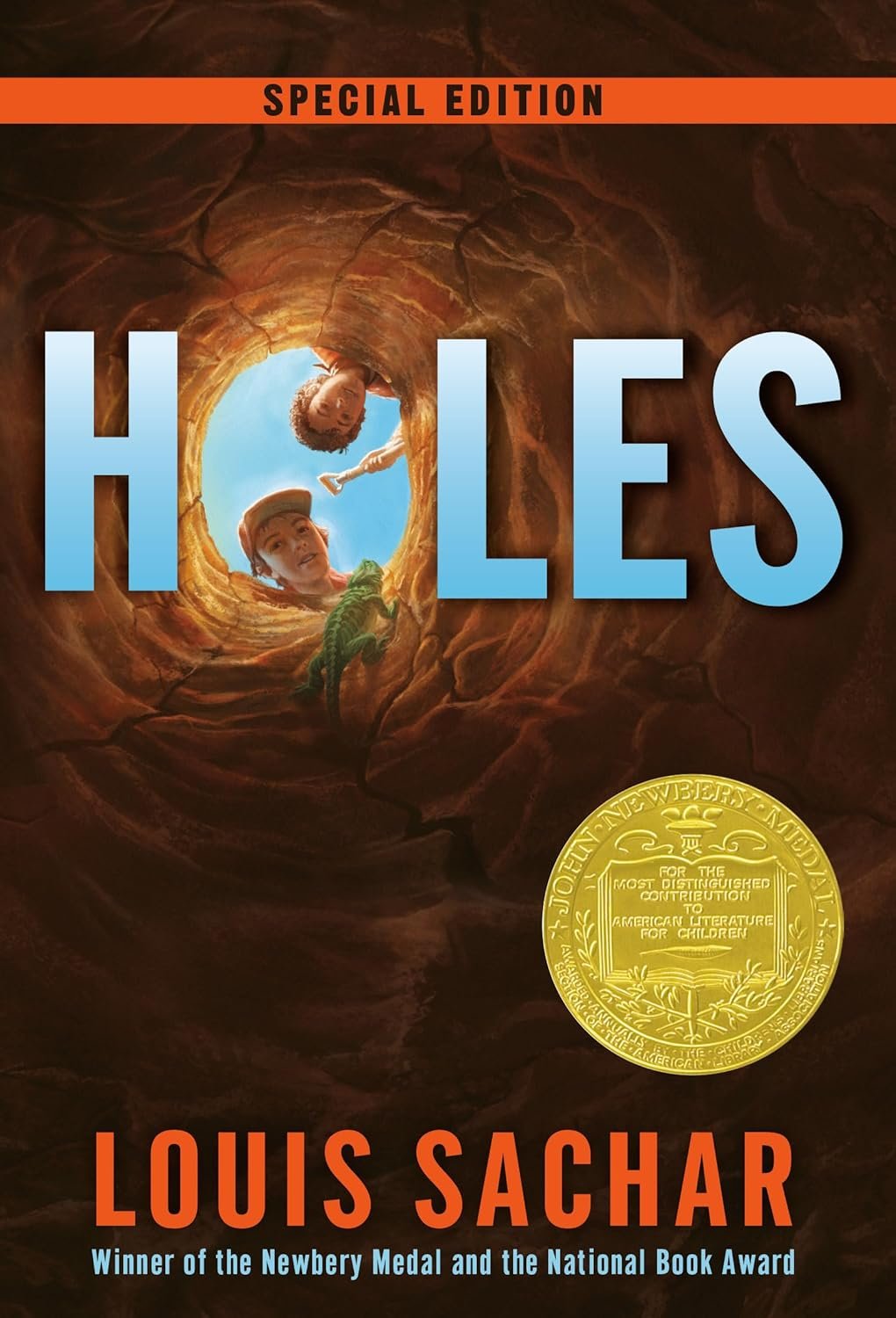
29 Sep Uncovering Layers: A Deep Dive into Louis Sachar’s ‘Holes’
Digging Deep: A Personal Reflection on Holes by Louis Sachar
From the moment I stumbled across Holes by Louis Sachar, I felt an irresistible pull towards its quirky premise. A boy named Stanley Yelnats digging holes in a dried-up lake? I was immediately intrigued. It wasn’t just the bizarre setting that caught my eye; it was also the depth of the story that promised more than mere adventure. Having seen the film adaptation during my childhood, I was curious to revisit this beloved classic and delve deeper into the worlds it creates.
At the heart of Holes lies the exploration of fate, friendship, and the interconnectedness of our actions through time. Stanley, an unfortunate victim of his family’s long-standing curse, finds himself sent to Camp Green Lake—a place that is as sinister as it is surreal. Through his experiences, we learn about the importance of choice and consequence, friendship, and the courage to re-write one’s destiny. The story masterfully intertwines Stanley’s modern-day struggles with flashes of the past, notably the tale of the outlaw Kissing Kate Barlow, creating a complex narrative that kept me turning the pages eagerly.
What amazes me most about Sachar’s writing is its accessibility, paired with profound depth. His use of straightforward language ensures that young readers can engage fully, while layered themes invite older readers to reflect on larger social issues. The pacing of the story is just right—each chapter contributes to both plot development and character growth, building tension while allowing moments of levity. It’s a delicate balance, much like the actual holes the characters are digging; each one goes deeper, revealing new truths.
There were moments that resonated with me, particularly how Sachar highlights themes of loyalty and friendship. The bond between Stanley and Zero—whose real name, Hector Zeroni, echoes generational themes—is both touching and pivotal. Their deal to teach one another—Stanley teaching Zero to read, while they help each other dig—speaks to the essence of enduring friendships and shared objectives. As Zero says, “I’m not stupid. I’m just not good at school.” This poignant line reminded me of the importance of recognizing intelligence in its many forms.
If Holes is new to you, or if you haven’t read it in a while, I highly recommend revisiting this gem. It’s more than just a story for children; it weaves a narrative that educates and entertains, laced with humor and heart. I can see young readers feeling inspired by characters who overcome their challenges while adults may find wisdom in the lessons about life and fate.
In conclusion, whether you’re looking for a book to share with a younger audience or searching for something that will spark nostalgia, Holes is a treasure worth digging into. Its timeless lessons on friendship and perseverance continue to resonate, making it a story that stays with you long after the last page is turned. As I closed the book, I felt a sense of satisfaction—not only from the journey but from the reminder that sometimes digging deep leads to unexpected but enriching discoveries.









